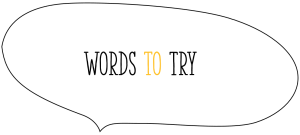1 Dominant Gender Ideology
Rebecca Yoshizawa
 The terms “sex” and “gender” are often used interchangeably in everyday talk, or even in official sources such as the Canadian Census. However, we seek to not only clarify what these terms mean as we use them in our disciplines, but also study why it is that in broader society, there can be confusion or disagreement about their meanings. We can argue that the seeming interchangeability of these terms comes from the dominant gender ideology of western society itself. Indeed, collapsing these two terms serves to reinforce the dominant gender ideology. We understand that ideologies are beliefs held in common that have descriptive and prescriptive components. So, we might look around our society and seemingly see “proof” that there are only two kinds of people – that is, men/boys, and women/girls. We could probably all describe what it means to be a man/boy or woman/girl, making those distinctions seem even more obvious and inherent. However, when we look around at the people in our society and see only two categories, what we are witnessing is the effect of how our sex and gender identities are prescribed for us by the dominant ideology, and the power of that prescription.
The terms “sex” and “gender” are often used interchangeably in everyday talk, or even in official sources such as the Canadian Census. However, we seek to not only clarify what these terms mean as we use them in our disciplines, but also study why it is that in broader society, there can be confusion or disagreement about their meanings. We can argue that the seeming interchangeability of these terms comes from the dominant gender ideology of western society itself. Indeed, collapsing these two terms serves to reinforce the dominant gender ideology. We understand that ideologies are beliefs held in common that have descriptive and prescriptive components. So, we might look around our society and seemingly see “proof” that there are only two kinds of people – that is, men/boys, and women/girls. We could probably all describe what it means to be a man/boy or woman/girl, making those distinctions seem even more obvious and inherent. However, when we look around at the people in our society and see only two categories, what we are witnessing is the effect of how our sex and gender identities are prescribed for us by the dominant ideology, and the power of that prescription.
The dominant gender ideology suggests that there are only two sexes and two genders and that by nature they align, such that males are always masculine, producing boys and men, and females always feminine, producing women and girls. When a child is born, it is quickly engaged in processes of socialization that instruct it on the proper behaviours, roles, and personalities associated with the child’s sex assigned at-birth.
Dominant gender ideology places limitations on identity, self-expression, and self-actualization. It also reinforces sexism, transphobia, homophobia, and other forms of discrimination, oppression, and violence in our society. For example, the belief that biological sex differences make women physically weaker than men, less capable of being leaders, and better suited to work in the home results in women’s diminished earnings and opportunities in the workforce. The gender pay gap and underrepresentation of women in positions of leadership are therefore outcomes of sexism, the belief that one sex is superior to another. Another example is the idea that there are only two sexes, who are “opposites,” which supports heteronormativity. Dominant gender ideology implies that someone should be sexually attracted only to those of the “opposite” sex, which denigrates same-sex attraction as well as other forms of sexuality such as bisexuality, pansexuality, and asexuality.
| Dominant Gender Ideology | ||
|---|---|---|
| Sex | Male | Female |
| Gender | Masculine | Feminine |
| Identity/Social Role | Man/Boy | Woman/Girl |
The reality of our world is that there are many ways to be sexed – one could be intersex, for example, or could be transgender or a person of trans experience. There are many ways to have a gender; one could be feminine and masculine simultaneously (really, we all have dynamic personalities and qualities), non-binary, queer… We are complex in our senses of self, self-expression, and identity, and the two options on the dominant gender ideology menu just don’t describe or give permission for all that is possible in human experience. Indeed, different societies throughout the world and history have different gender systems than the one being described here.

Ideology: a set of shared beliefs about how the world is and ought to be
Gender binary: the idea that there are only two genders, masculine and feminine
Sex: supposed physiological and anatomical differences related to reproductive/sexual body systems, typically understood dualistically as producing males or females
Gender: cultural and social roles, expectations, behaviours, values, and assumptions associated with masculinity or femininity
Sexism: differential treatment of different sexes or the belief that one sex is superior to another
A set of shared beliefs about how the world is and ought to be.
the idea that there are only two genders, masculine and feminine
supposed physiological and anatomical differences related to reproductive/sexual body systems, typically understood dualistically as producing males or females
cultural and social roles, expectations, behaviours, values, and assumptions associated with masculinity or femininity
differential treatment of different sexes or the belief that one sex is superior to another

